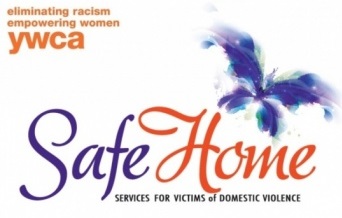Thrive’s service area extends out from York and Adams counties in Pennsylvania to include Hanover, McSherrystown, Littlestown, New Oxford, East Berlin, Hampton, Biglerville, Bonneauville, Gettysburg, Chambersburg, Lemoyne, Spring Grove, York, Dover, Glen Rock, and Manchester.
We offer support groups that meet every other Thursday from 6:30 - 8:00 PM in Hanover. If you are a victim interested in attending, click here to contact us for details.
Contact us by phone or text: 717-640-2951
for a 24 hour hotline offering crisis response, contact
Safe Home, Hanover, PA: (717) 632-0007
Emergency safe housing and referrals to local shelters
Legal advocacy, including assistance with filing protection orders
Quick Facts about Domestic Violence
Domestic violence victims may suffer from one or more of the following types of abuse: physical, emotional, sexual, financial, and technological.
Domestic violence may include threats, harassment, intimidation, unlawful restraint or stalking.
Domestic violence may involve family members or couples (whether married, separated, divorced, or single).
Domestic violence includes dating violence, even if the victim is no longer dating the perpetrator.
Domestic violence victims are of all ages, gender, sexual orientation, race, ethnicity, class, religion, and so on.
Signs of an Abusive Partner
Domestic violence encompasses a spectrum of behaviors that abusers use to control victims. The following list includes warning signs that someone may be abusive. If you or a friend experience these behaviors from a partner, remember: it is not your fault and there are advocates waiting to help.
“Red flags” include someone who:
Wants to move too quickly into the relationship.
Early in the relationship flatters you constantly, and seems “too good to be true.”
Wants you all to him- or herself; insists that you stop spending time with your friends or family.
Insists that you stop participating in hobbies or activities, quit school, or quit your job.
Does not honor your boundaries.
Is excessively jealous and accuses you of being unfaithful.
Wants to know where you are all of the time and frequently calls, emails, and texts you throughout the day.
Criticizes or puts you down; says you are crazy, stupid, and/or fat/unattractive, or that no one else would ever want or love you.
Takes no responsibility for his or her behavior and blames others.
Has a history of abusing others.
Blames the entire failure of previous relationships on his or her former partner; for example, “My ex was totally crazy.”
Takes your money or runs up your credit card debt.
Rages out of control with you but can maintain composure around others.
Abuse is never the fault of the victim and it can be hard for many reasons, including safety, to end the relationship. If you experience these “red flags,” you can confide in a friend or reach out for support from a domestic violence advocate. If you believe a friend or relative is being abused, offer your nonjudgmental support and help.
The Power and Control Wheel is a way of visually representing the tactics typically used by men who batter. Click here to see the Wheel and learn more.


